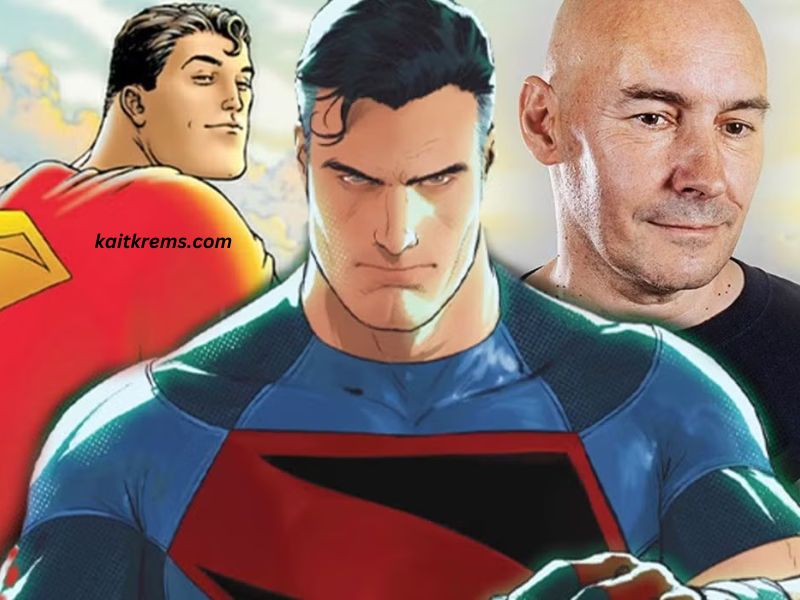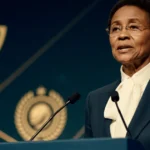Bounding Into Comics (BIC) is a digital publication that has become a prominent voice in the realm of pop culture commentary. Focusing on comics, movies, television, and gaming, the site is frequently labeled by critics as having far-right-leaning views. The platform’s style of reporting often intertwines conservative political ideology with cultural critique, sparking heated debates among fans, creators, and critics alike.
This article explores Bounding Into Comics’ perceived far-right leanings, its editorial approach, and how it fits into the broader media landscape.
The Emergence of Bounding Into Comics
Founded in 2014, Bounding Into Comics initially positioned itself as a resource for comic book enthusiasts seeking reviews, previews, and news. Over time, however, the site began shifting its tone, focusing heavily on the intersection of pop culture and politics. This pivot occurred alongside rising tensions in the comic book industry, particularly concerning debates around representation, diversity, and ideological shifts within storytelling.
The site’s coverage extends beyond comics to include movies, TV series, gaming, and even broader cultural topics. Through its articles, Bounding Into Comics often critiques mainstream entertainment media, accusing creators of prioritizing “wokeness” over storytelling and quality.
Claims of Far-Right Bias
Critics of Bounding Into Comics argue that the platform amplifies far-right ideologies by aligning itself with politically conservative narratives. Articles frequently criticize progressive shifts in entertainment, such as increased representation of women, LGBTQ+ characters, and people of color in traditionally male-dominated genres. These critiques, framed as opposition to “forced diversity” or “agenda-driven storytelling,” have led many to label the site as far-right.
Key elements that contribute to this perception include:
- Editorial Focus on “Culture Wars”: Bounding Into Comics regularly covers stories about perceived “culture wars” in entertainment. These articles often decry progressive movements within the industry, such as inclusive casting decisions or storylines that address social justice themes.
- Association with Conservative Figures: The site often cites or collaborates with conservative commentators and influencers who share similar views. These associations have reinforced the perception that BIC operates as a right-wing cultural outlet.
- Content Framing and Language: Articles on Bounding Into Comics frequently use emotionally charged language, framing progressive creators or projects as threats to traditional storytelling. Terms like “woke agenda” or “leftist ideology” are commonly employed, aligning the platform’s rhetoric with far-right discourse.
Supporters vs. Critics
Bounding Into Comics has cultivated a loyal audience, particularly among readers who feel alienated by mainstream entertainment media’s perceived shift toward progressive values. Supporters often argue that the site provides a necessary counterbalance to an industry they see as overly influenced by left-leaning ideologies.
Conversely, critics view the platform as a bastion for reactionary commentary that undermines efforts toward inclusivity and diversity in storytelling. Some creators and fans argue that Bounding Into Comics weaponizes cultural issues to stoke division, rather than fostering meaningful dialogue.
Key Controversies
Bounding Into Comics has been involved in several high-profile controversies that illustrate its divisive reputation.
- The “Comicsgate” Movement
Bounding Into Comics gained significant attention during the Comicsgate controversy, a movement that criticized progressive trends in the comic book industry. While supporters claimed the movement was about preserving creative quality, critics argued it was rooted in harassment and bigotry. BIC’s sympathetic coverage of Comicsgate cemented its association with right-wing ideologies. - Criticism of Star Wars Sequels
The site has consistently criticized Disney’s Star Wars sequel trilogy, often framing its critiques around alleged “woke” elements, such as the inclusion of strong female leads and diverse characters. While some fans appreciated the critique of Disney’s handling of the franchise, others accused BIC of promoting misogynistic and racist narratives. - Coverage of Marvel and DC Comics
Bounding Into Comics frequently targets Marvel and DC Comics for their emphasis on diverse storytelling. Articles criticizing characters like Kamala Khan (Ms. Marvel) or Jonathan Kent (Superman’s son, depicted as bisexual) have drawn backlash from progressive readers, who view the critiques as thinly veiled bigotry.
The Role of Media in Shaping Perceptions
The debates surrounding Bounding Into Comics highlight the broader role of media in shaping cultural narratives. Pop culture, once seen as escapism, has become a battleground for ideological conflicts.
Bounding Into Comics serves as an example of how media platforms can amplify specific perspectives, influencing public opinion and discourse. Its coverage resonates with readers who feel disenchanted with mainstream entertainment but also alienates those who view its rhetoric as divisive or harmful.
Critiques of Progressive Media
Supporters of Bounding Into Comics argue that its critiques of progressive media are valid. They believe that mainstream entertainment companies are prioritizing social messaging over quality storytelling, leading to a decline in the art form.
For example, critics of recent Marvel movies often cite declining box office numbers as evidence that audiences are rejecting “agenda-driven” films. Bounding Into Comics amplifies these sentiments, framing them as proof of a cultural shift against “wokeness.”
The Ethics of Criticism
One of the central debates surrounding Bounding Into Comics is whether its critiques cross the line into harmful rhetoric. Critics argue that the platform’s coverage often targets individuals—such as actors, writers, or directors—leading to online harassment. For example, when BIC published critical articles about actors like Brie Larson (Captain Marvel), fans accused the site of fueling toxic behavior.
Supporters, however, argue that criticism is not harassment. They claim that Bounding Into Comics is simply holding creators accountable for their decisions and that any backlash stems from broader fan reactions, not the publication itself.
How Bounding Into Comics Responds to Accusations
Bounding Into Comics has generally denied accusations of being a far-right platform. Its editors and writers often claim that their critiques are rooted in a love for storytelling and a desire to preserve creative integrity, rather than political ideology.
Despite these assertions, the site’s consistent alignment with conservative viewpoints continues to fuel skepticism.
The Broader Implications
The rise of Bounding Into Comics reflects broader trends in media consumption and cultural discourse. As audiences become increasingly polarized, niche outlets like BIC thrive by catering to specific ideological viewpoints. This trend raises questions about the role of media in fostering dialogue versus reinforcing division.
For creators and fans, the challenge lies in finding common ground. While criticism is a natural part of any artistic medium, the line between constructive critique and harmful rhetoric is often blurred in today’s hyper-partisan landscape.
Conclusion
Bounding Into Comics occupies a unique and controversial space within the pop culture landscape. To its supporters, it is a necessary voice challenging progressive overreach in entertainment. To its critics, it represents a far-right platform that undermines efforts toward inclusivity and diversity.
Ultimately, the perception of Bounding Into Comics as far-right depends largely on individual perspectives and ideological alignments. As debates around pop culture and politics continue to evolve, the platform’s role in shaping these discussions remains a topic of significant interest.
By examining Bounding Into Comics’ editorial approach, controversies, and cultural impact, this article sheds light on the complexities of media, ideology, and storytelling in the 21st century. Whether you see the platform as a champion of free expression or a promoter of divisive rhetoric, there’s no denying its influence on the ongoing cultural conversation.






